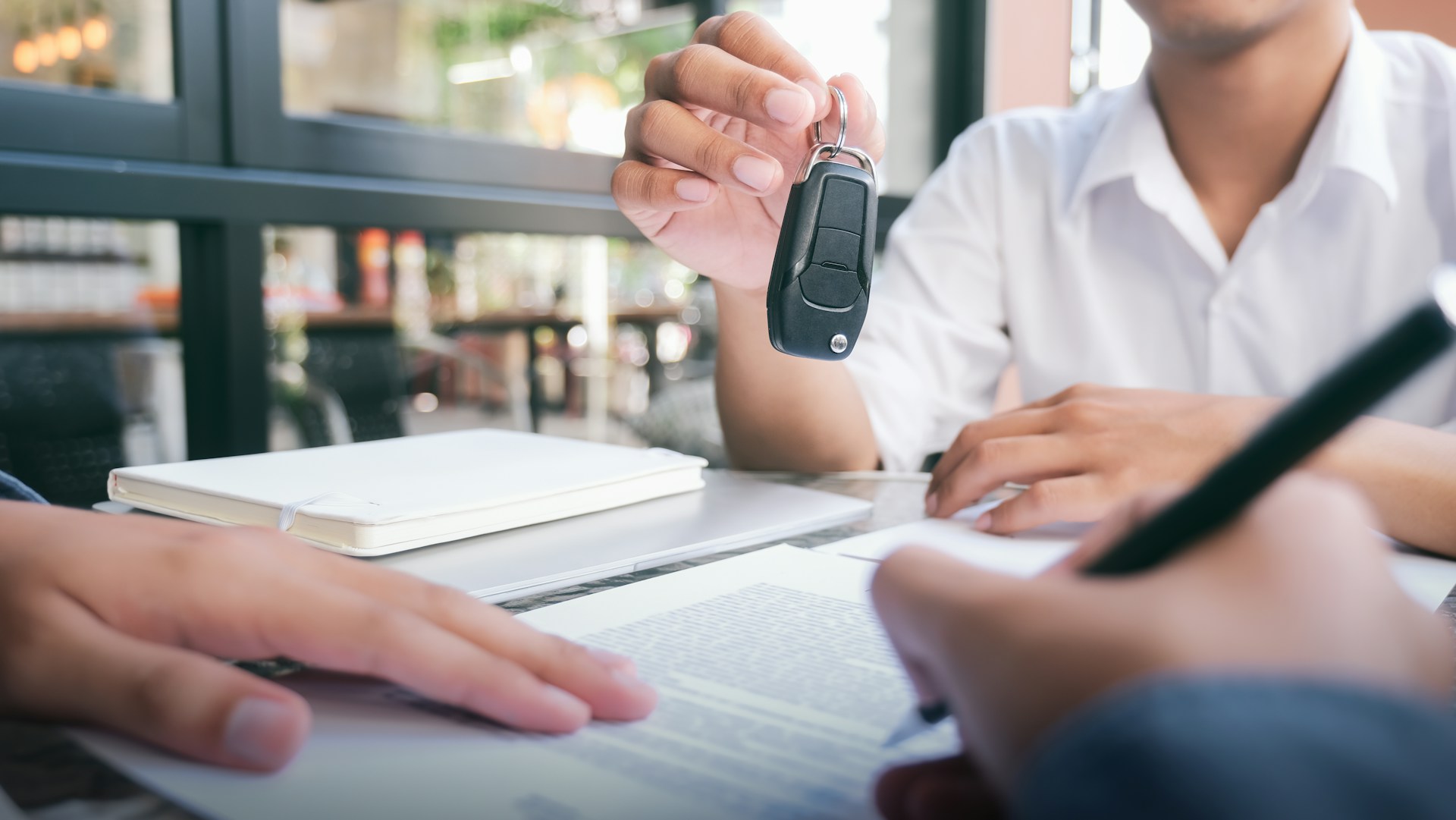
When buying a car from a private seller, paying with physical cash might seem like the simplest option. Cash is straightforward—at least when you’re buying a cheap car from your neighbor. For high-dollar private-party cars, cash isn’t the smartest solution.
Learn about when cash makes sense for car purchases and when it doesn’t. Then, discover an alternative that gives you the benefits of cash without the risk and hassle.
Cash is immediate and tangible, and people inherently trust it. Here’s why people choose cash over other payment methods:
Cash works particularly well when buying from someone you trust, such as a family member or friend. But when you’re spending serious money on a late-model vehicle, the disadvantages of physical cash start to outweigh the benefits.
Paying in cash means carrying thousands of dollars to meet a stranger. It’s inconvenient and potentially dangerous.
Carrying thousands in cash makes you vulnerable.
Getting large amounts of cash isn’t as simple as visiting an ATM. Here’s why:
Even after getting your hands on the cash, it creates friction in the transaction.
Every private-party deal faces a major hurdle: the moment of exchange. You want the title before handing over your money, and the seller wants to get paid before signing over their car. You both want to finish the deal, but neither one wants to go first.
For a $2,500 beater, most people are fine with the risk. But when you’re buying a $45,000 truck, you can’t risk handing over stacks of cash without a guarantee, and the seller won’t sign over their vehicle until they’re paid.
Some buyers and sellers use an escrow service to solve this problem. These companies hold your funds while the seller transfers the title, then release payment when everything checks out. Escrow works, but it adds:
A bill of sale is much cheaper and faster than escrow—and nearly as safe. It’s a legally binding document that records the sales price, holds both parties accountable, and gives you legal recourse if something goes wrong. Once both parties have signed and countersigned two copies of the bill of sale, you can pay for the car knowing the seller will follow through.
Most states have official bill of sale forms that include:
Printed bills of sale do have two edge-case vulnerabilities:
This is where digital solutions have the advantage over physical cash and paper documents.
We built DealNow to give you the benefits of physical cash without the risks. Find a car and pay instantly, anytime, anywhere, just like cash. Unlike cash, your digital payment can’t get lost, be stolen, or require verification.
When you use DealNow:
Our other buyer features, like title check and vehicle history report help you research the car and verify the title status. Order a mechanical inspection, arrange shipping for long-distance purchases, and shop for insurance from your DealNow Dashboard. After purchase, your digital bill of sale remains accessible in your account, ready to print for DMV filing.
Once you buy with DealNow, you’ll be ready to save your cash for restaurant tips and pay the smart way.
DealNow is the fastest way to pay for a used car in a private sale. We offer instant transfers any time of day, 24/7. Unlike personal checks that take days to clear, DealNow lets cash buyers complete payment on the spot while protecting both parties. There’s no dealer financing paperwork to slow you down, and no waiting for cash deposits to clear. It’s the rule of thumb for modern car buyers who value speed and security in their vehicle purchase.
Wire transfers typically take about a business day to complete. You’ll need to visit a bank branch during business hours, complete paperwork, and pay transfer fees that can reach $50.
PayPal wasn’t designed for high-value vehicle purchases. While it works for smaller transactions, it has serious limitations for car buying: high fees (2.9%+), strict transaction limits, and a chargeback period that makes sellers nervous. For a major cash transaction like buying a car, PayPal simply doesn’t offer enough protection against fraud or disputes. DealNow provides verified security specifically designed for automotive transactions, eliminating counterfeit cash concerns while maintaining the immediacy cash buyers want.
DealNow provides the perfect safety combination for car buyers: the immediacy of cash without the risk of carrying it, the security of a wire transfer without delays, and protection from scams without escrow service fees. Unlike physical cash that can be counterfeit or personal checks that can bounce, DealNow’s verified transactions protect both parties with secure digital documentation and identity verification.
For a used car purchase, DealNow offers advantages over every alternative payment method. Unlike personal checks that can bounce or physical cash that creates safety issues, DealNow provides instant, verified payments with none of the risks. Auto dealers often pressure buyers into loan terms with hidden loan fees, but private sales through DealNow give you complete control over your cash deal. Whether you’re buying a single vehicle or building a collection, DealNow makes the payment process seamless and secure.